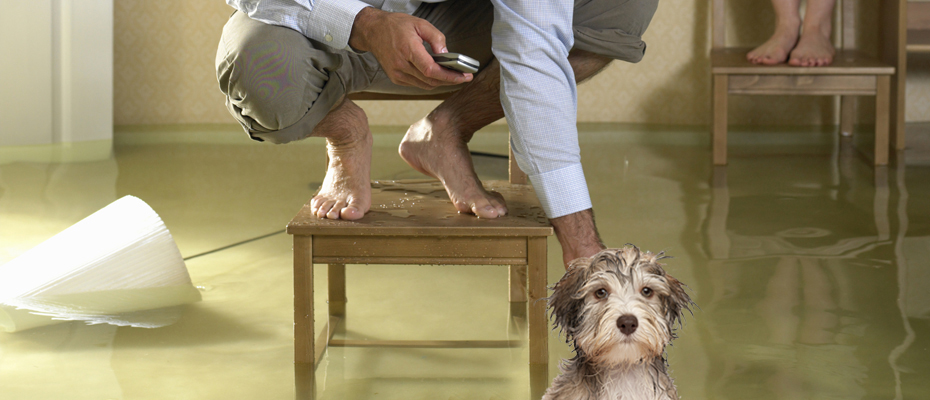FLOOD DISASTER
A flood can be a dangerous experience, whether it’s confined to your basement or a large-scale weather event. Large-scale flooding carries the obvious risk of drowning, but even smaller home floods can result in dangerous electrical hazards and contamination risks.
A flood situation puts you at risk for electrocution if you make physical contact with floodwaters and your home is not fully disconnected from the grid. Never go into a flooded basement until a licensed electrician or emergency worker (such as from the fire department or utility company) has fully disconnected your home from the grid. Even if you’ve lost power during a storm, a neighbor running a generator could be enough to backfeed electricity into your home and put you at risk for electrocution.
Flash floods are particularly dangerous. The Centers for Disease Control report that over half of all flood-related drownings occur when a vehicle is driven into hazardous floodwater. According to the National Weather Service, a mere 6 inches of fast-moving flood water can knock over an adult. It takes just 12 inches of rushing water to carry away a small car, while 2 feet of rushing water can carry away most vehicles.
In addition to the risks of drowning, electrocution and injury that are present in the aftermath of a flood, contamination is a serious threat to your health. In general, there are three types of floodwater you might encounter. Clean water and greywater floods are usually confined to the home, while blackwater floods can happen at home but also on a larger scale, such as the widespread flooding after a hurricane or other severe weather event.
Clean Water
Floodwater that does not post an immediate health threat is known as clean water. Clean water floods can result from malfunctioning appliances, toilet holding tanks, and melting snow and rainwater. Clean water home floods are generally safe for you to clean up yourself, but standing clean water can become greywater in as little as 48 hours.
Greywater
Greywater, or sullage, refers to wastewater that is not contaminated with fecal matter. It generally contains fewer pathogens than blackwater and can be reused for non-potable purposes, such as toilet flushing. Greywater still contains small amounts of contaminants and can induce illness if ingested. Greywater cleanup must begin immediately–greywater can become blackwater in as little as 48 hours.
Blackwater
Blackwater refers to wastewater contaminated with human waste. The citywide floodwaters we see on television are blackwater. Raw sewage is classified as blackwater. Blackwater is a haven for dangerous bacteria and pathogens that must fully decompose before being released into the environment. It can also be contaminated with dissolved chemicals and particulates, making contact even more dangerous.
When it comes to flooding emergencies, blackwater floods are the most dangerous and the most destructive. Because of the grossly unsanitary conditions of the water, porous and absorbent items such as carpets, upholstery and drywall are often unsalvageable. Contact with blackwater via ingestion or skin contact can cause illness in both humans and pets.
Craftsman Home Remodeling professionals have seen the devastating effects water can have on your home and family. That’s why we understand the importance of prompt response times, and being available around the clock to help get your house back to normal as quickly as possible.Craftsman Home Remodeling’s water restoration professionals will provide a free on-site evaluation and work directly with your insurance company to make the repair experience as hassle-free as possible. While some disasters can’t be predicted, if you live in an area prone to natural disasters, or have had plumbing-related basement floods in the past, there are a few things you can do to protect your home.
- Monitor any areas that have had water damage in the past.
- Keep the number of your local Plumber in Rochester, NY on hand at all times! Save the number to your local Water Restoration Professional in Rochester, NY or plumbing expert and post it near the areas most susceptible to water damage.
- Inspect pipes, water shutoff valves, appliance connections and hoses regularly for potential leaks.
- In areas prone to flood damage, install flood alarms for help with early detection and to prevent damage.
Share this Post

